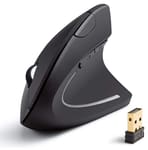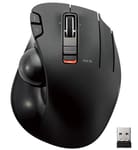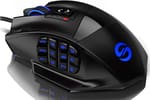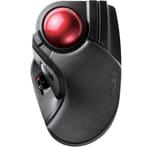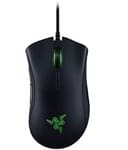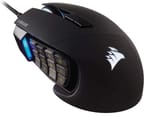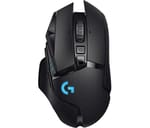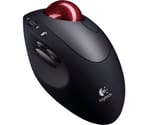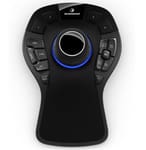Whether in engineering, architecture, or other field, people who work in areas that require computer-aided design (CAD) know all too well that you use your mouse a lot. Therefore, it makes sense to choose a mouse that’s suited for your work so that you don’t end your day with a sore wrist and general frustration.
Mice designed or recommended for working with CAD are modeled to keep your hands and wrists in good shape. They also boast excellent precision, which is needed for detailed work, and have dedicated and programmable keys, which can make operating certain programs smoother.
CAD programs can deal with all types of mice, from common to complex. However, it’s also necessary to keep in mind the distinction between a primary mouse and a secondary mouse, such as SpaceMouse options. We’ll talk more about this later.
And speaking of price point, we’ve tried to provide an array of options for different budgets. We’ve organized the list starting with the more budget-friendly options. However, keep in mind that manufacturers and resellers may offer more expensive kits that include additional accessories. Be sure to keep an eye out for what’ll suit you best!
But first, let’s take a look at a few considerations to keep in mind.
What to Look For

Here’s what we considered when putting together this list:
- Design: If you’re using your mouse for hours at a time daily during CAD use, you’ll need good design. These mice are ergonomic and are shaped for the greatest ease of use, no matter what you’re working on.
- CAD-friendly: Many of the choices here are made specifically for CAD use or come highly recommended for CAD work, cropping up numerous times in user forums and reviews.
- Positive feedback: The list provides options that are well-loved by CAD users from a variety of fields.
- Quality and support: The featured selection is top-rated for quality and function, and the manufacturers typically provide good support and customer service if there are any questions.
So now you know what you’re in for, let’s see some mice!
Anker Vertical
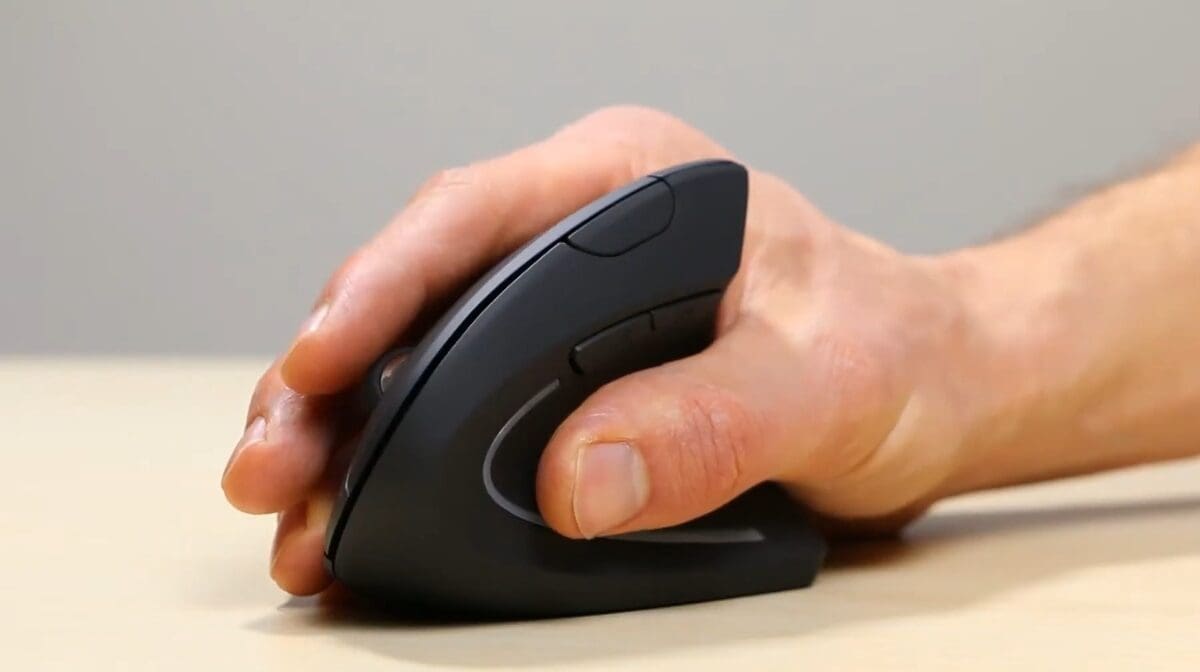
Particularly ideal for users with large hands who require a high level of comfort and support for CAD work, the Anker Wireless Vertical mouse manages to be both budget-friendly and optimal for many hours at the computer. Featuring adjustable DPI levels and a design optimized for maximum hand and wrist comfort, you’ll get the job done without the strain.
Other notable functions of the Anker Wireless Vertical include conveniently placed buttons for easy access, long battery life, and sensitive optical tracking. Users report that Anker has good customer service if you have any issues. For the price, it’s hard to get much better!
- Manufacturer: Anker
- Wired or wireless: Wireless
- Special features: Extra buttons for smooth navigation, optical tracking technology
- Approximate price: $25
Perixx Perimice-508

The Perixx Perimice-508 is a wired ergonomic vertical mouse. By promoting a natural handshake position, this mouse reduces pressure on the wrist and forearm, providing a more comfortable and ergonomic experience for CAD professionals. Its vertical orientation allows for a relaxed hand position, enabling users to work for extended periods without discomfort. It’s quite similar to the Evoluent VerticalMouse, which we’ll get to later, but at a fraction of the price!
One of the standout features of the Perimice-508 is its advanced optical tracking with adjustable high resolution, which ensures precise movement and accuracy on various surfaces. The mouse’s 6-button design includes next/previous buttons for web browsing, a scroll wheel, and a DPI adjustment button, offering convenient navigation and customization options. Keep in mind you’ll only be getting around 1,600 DPI for this price point, though.
- Manufacturer: Perixx
- Wired or wireless: Wired
- Special features: Ergonomic vertical design, advanced optical tracking, adjustable resolution, programmable buttons
- Approximate price: $30
Redragon M913
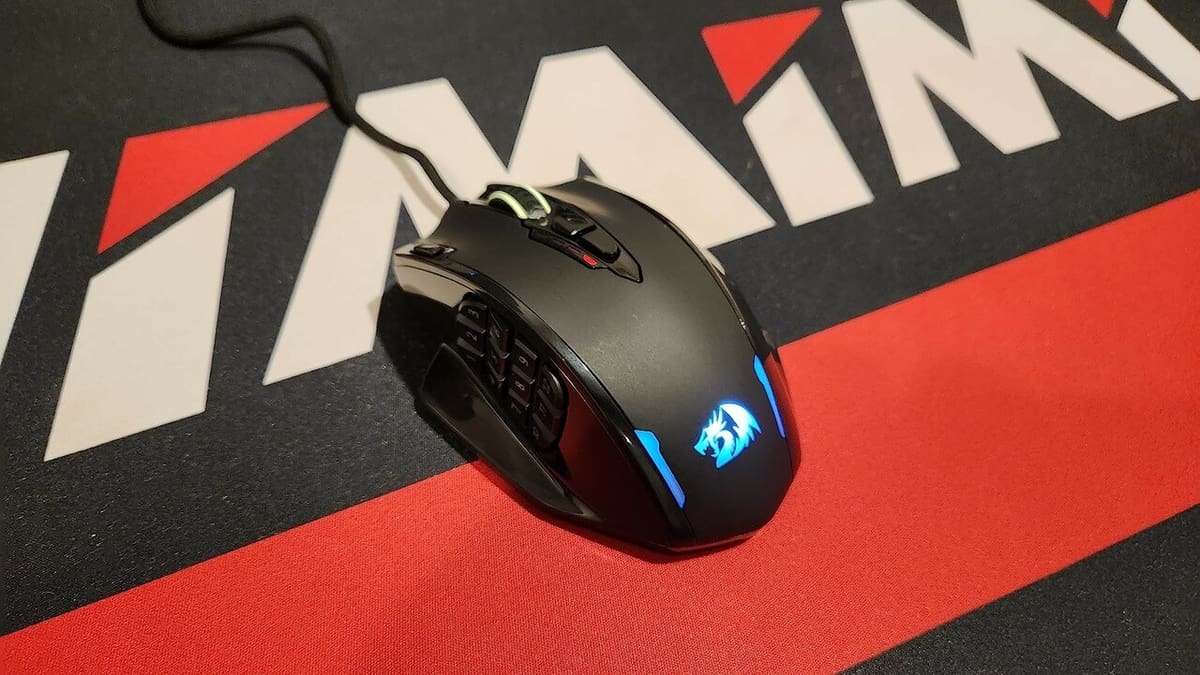
If you like using shortcut buttons, you can’t miss this next option. In total, there are 16 programmable buttons, as well as 5 resolution levels with 1,000, 2,000, 4,000, 8,000, and 16,000 DPIs that are predefined and can be toggled using the top buttons. You can also use the Micro-USB charging cable for wired connection or opt for the 2.4-Ghz dual mode Wi-Fi connection. For those who like to use the mouse by lifting and dragging, the Pixart 3335 sensor offers additional comfort by quickly detecting movement with a 1-ms response time.
While its target audience may be gamers, CAD professionals can also take advantage of it, as the shortcut buttons work well with macro functions and they have a smooth touch. There are also recommendations about the Redragon being a good option for modeling and animation in Blender. However, one of its best features is its battery life of up to 45 hours of use or 80 hours in battery saving mode. The gamer look of the colorful LEDs can be customized through the mouse’s application to match your style.
- Manufacturer: Redragon
- Wired or wireless: Wired and wireless
- Special features: 2.4 Ghz Wireless, rapid fire key, 12 side buttons
- Approximate price: $35
Elecom with Thumb-Operated Trackball
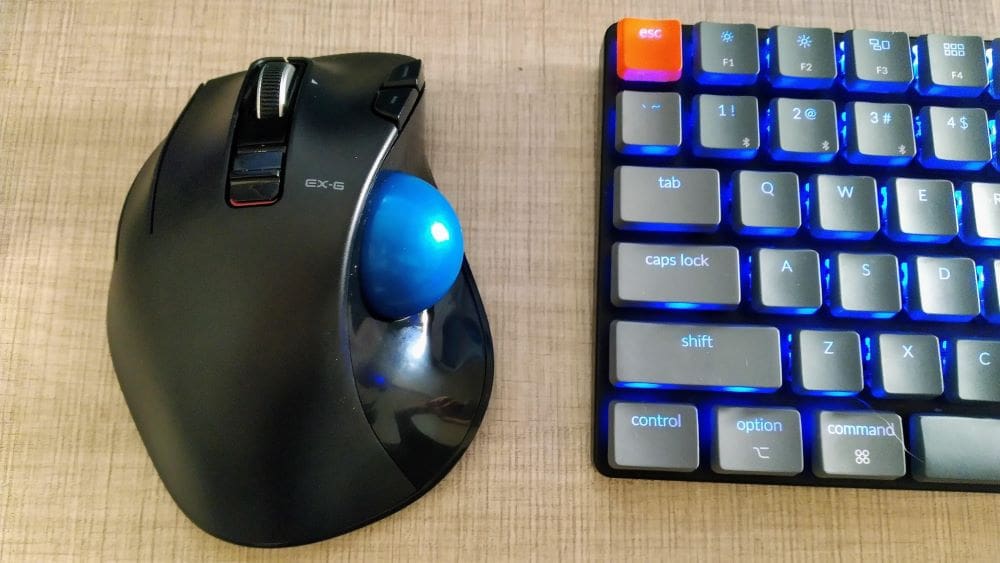
If you’re on the hunt for a budget-friendly mouse that’s great for CAD work, the Elecom wireless trackball mouse is an excellent option. Though inexpensive, users praise its good quality and long battery life, and it has many helpful features. It sports different options for levels of sensitivity, you can assign functions to the buttons, and the ergonomics are good (it’s particularly well-liked by users with larger hands).
Tracking and scrolling are reported to be smooth sailing, too. The Elecom mouse also has the benefit of easy maintenance and cleaning. The ball readily comes out to be dusted off, which makes it one of the mice on this list that’s easy to keep in good shape.
- Manfacturer: Elecom
- Wired or wireless: Wireless
- Special features: DPI switch, optical tracking, flywheel scrolling, left-handed version available
- Approximate price: $37
UtechSmart Venus Gaming Mouse
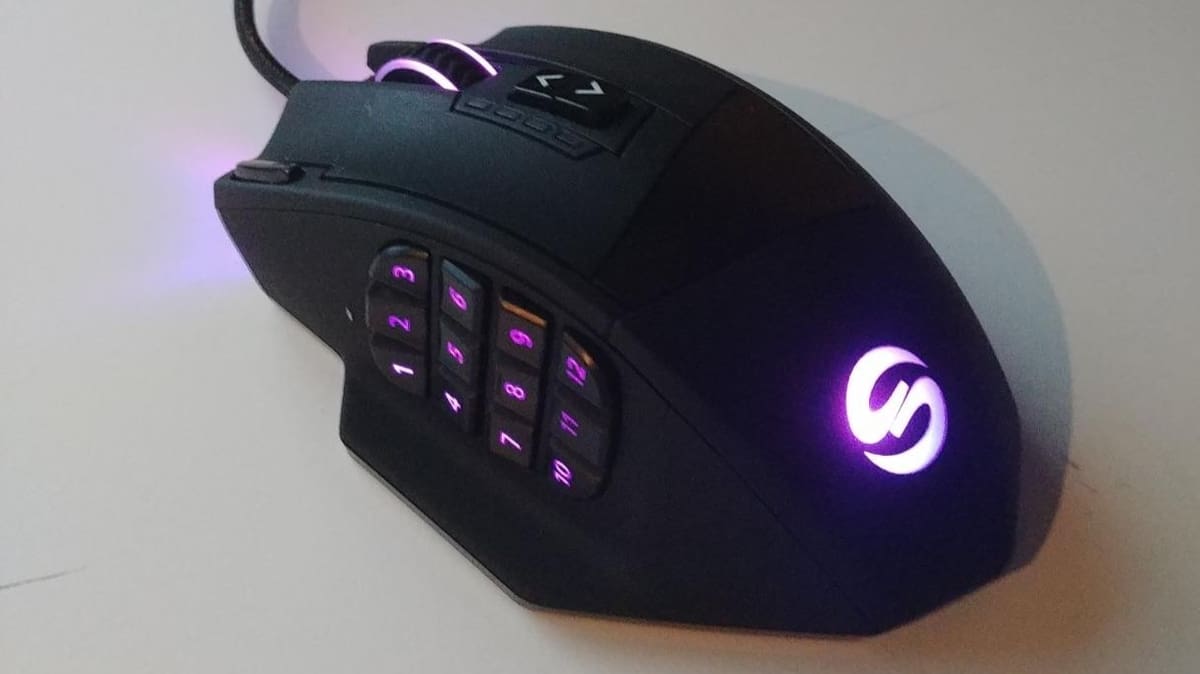
The UtechSmart Venus Gaming Mouse combines comfort, customization, and precision to provide an excellent user experience for both gaming and CAD applications. Its affordable price point makes it an attractive option for professionals looking to enhance their CAD workflow without breaking the bank.
Although it’s a wired mouse, its 6.1 ft braided cable provides ample length for flexible maneuverability. However, it’s worth mentioning that the mouse is relatively bulky and may not be the most portable option.
It features 19 mechanical buttons, including 12 programmable side buttons, allowing you to assign a multitude of frequently used commands and macros. The mouse’s laser sensor offers adjustable CPI settings ranging from 50 to 16,400 DPI, which is a great range at this price point.
- Manufacturer: UtechSmart
- Wired or wireless: Wired
- Special features: Programmable buttons, adjustable DPI, ergonomic design, customizable RGB lighting
- Approximate price: $50
Elecom Huge
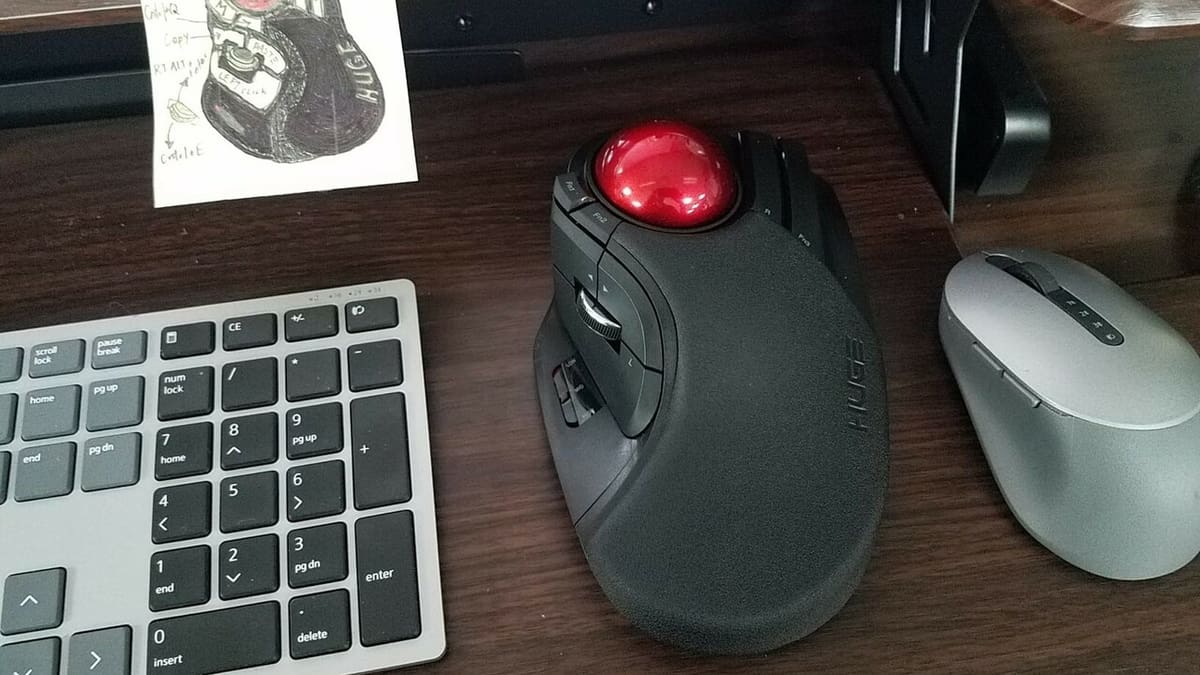
If space on your desk isn’t a problem and your anatomy demands something that provides more support, this could be the solution you’re looking for. The big advantage are six key support points that reach the entire hand on a soft and comfortable surface that can eliminate a lot of pain while reducing the need of movement. The resolution can be adjusted in three settings: low, medium, and high, ranging from 500 to 1,500 DPI. The scroll wheel rests comfortably on the thumb and also has a total of eight programmable buttons.
At the underside of the mouse, the power button allows for two operating modes, energy saving or high precision. The wireless version uses two AA batteries that have an estimated duration of 235 hours of continuous use in economy mode and 137 hours in high precision mode, taking into account 8 hours of daily use. If you want to avoid the hassle of running out of batteries or toggling between power modes, there’s also a wired version that has the same functions and features, with lots of praise on Reddit.
- Manufacturer: Elecom
- Wired or wireless: Wireless
- Special features: Ergonomic design, adjustable resolution, big support area, programmable buttons
- Approximate price: $60
Razer DeathAdder Elite

An excellent product by Razer, this is technically a gaming mouse, but it works well with CAD programming and offers great quality for its price point (particularly for Razer mice). Sporting a 16,000 DPI optical sensor, users are fans of its high-resolution accuracy for 3D design work.
The rubber side grips provide added comfort for your hand, and the grips on the scroll function help keep things running smoothly and prevent accidental scrolling.
- Manufacturer: Razer
- Wired or wireless: Wired
- Special features: Auto-calibration, drag-free cord, programmable buttons
- Approximate price: $70
Corsair Scimitar

The Corsair Scimitar offers CAD professionals a reliable and customizable tool for their design work. The ergonomic design, customizable buttons, and high-performance sensor enhances productivity and workflow efficiency.
Some of the standout features include the 12 easily distinguishable thumb buttons and a customizable thumb pad that provides quick access to shortcuts and commands.
An impressive DPI sensor with a maximum resolution of 18,000 allows for precise cursor movement and accurate 3D modeling. Its large size and ergonomic design cater to various grip styles, making it suitable for claw- or palm-grip users.
The Corsair Utility Engine (iCUE) software provides extensive customization options, enabling users to program buttons, create profiles, and adjust RGB lighting to suit their preferences.
- Manufacturer: Corsair
- Wired or wireless: Wired
- Special features: 12 programmable thumb buttons, customizable thumb pad, adjustable DPI sensor
- Approximate price: $80
Logitech MX Ergo
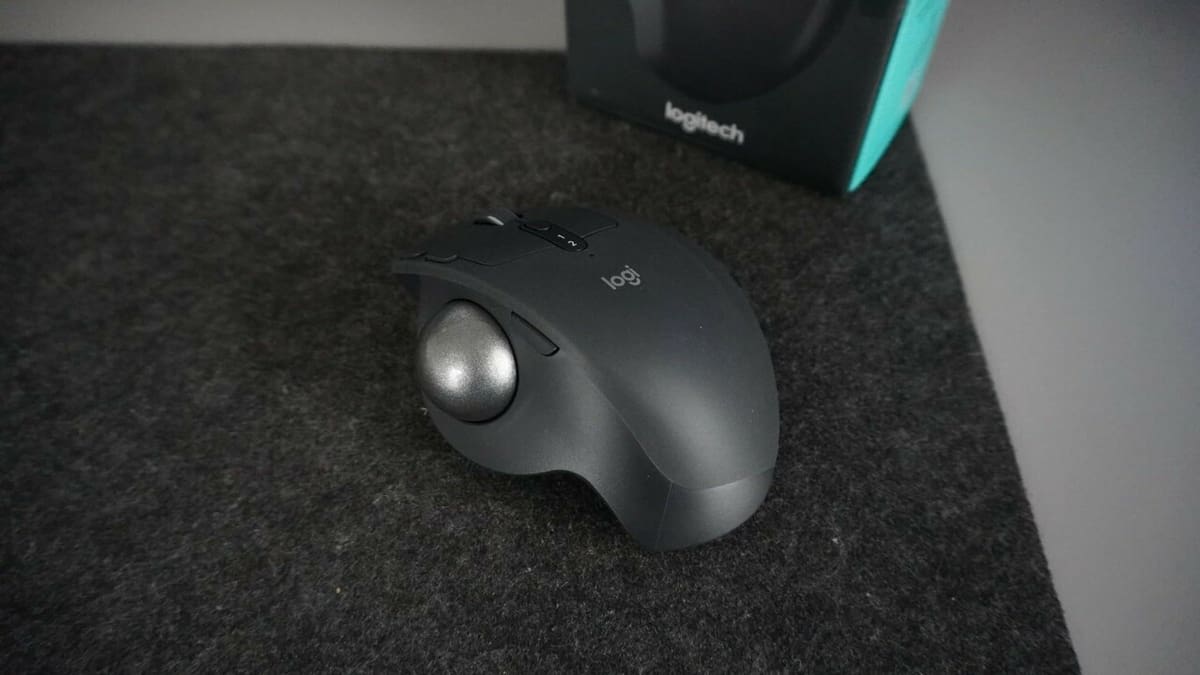
Trackballs are very well known among CAD users and modelers, and even though opinions are divided, there are those who can’t live without one of these; after all, each user has different needs. The Mx Ergo is an option that has an adjustable height in two positions of 0 and 20%, giving the feeling of using a vertical mouse as well. Its fixed position may be a little strange at first use, but it aims to reduce muscle and wrist fatigue while moving the cursor with just your thumb and requires less space on tables and tight spaces in order to prevent tendonitis.
With an internal 500-ma battery, it promises a total duration of up to 4 months, maintained with short daily charging cycles of one minute after use, but it’s necessary to charge the battery completely the first time. Unlike other options on this list, it doesn’t have a particularly high DPI resolution; it can be adjusted between 320 and 440 DPI. However, this can be enough for many CAD jobs, and it can be toggled with the button conveniently placed next to the trackball.
The device comes with Wi-Fi and Bluetooth receivers, and it’s possible to place each one on a different computer and switch the use of the mouse between each computer by simply clicking on the button dedicated to the function.
- Manufacturer: Logitech
- Wired or wireless: Wireless
- Special features: Ergonomic design, adjustable resolution, dual receivers, programmable buttons
- Approximate price: $100
Kensington Expert Trackball

The Kensington Expert Wireless trackball mouse may be of special interest to left-handed and ambidextrous CAD users, as it can be used in both right- and left-handed positions. It’s rated highly for precision tracking, and it offers Bluetooth connectivity. Its detachable wrist rests offer added protection for users’ wrists.
The smooth trackball makes it easy to move up and down to view your work, whether it’s a sketch or a 3D model. Included software allows users to customize certain features of the mouse-like buttons and the cursor speed. In particular, CAD users give this mouse good reviews for editing purposes.
- Manufacturer: Kensington
- Wired or wireless: Wireless (wired versions are also available)
- Special features: Detachable wrist rest supports, optical tracking technology, Bluetooth capabilities
- Approximate price: $100
CADMouse Pro
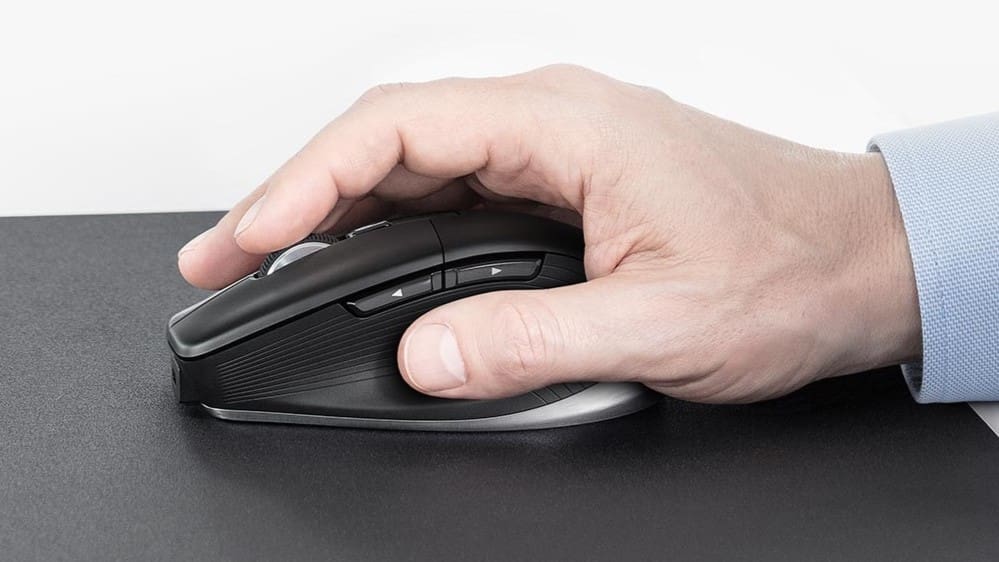
The CadMouse Pro Wireless is an award-winning mouse used by many CAD professionals, and it comes up numerous times as a popular choice in forums and reviews. Constructed with the CAD workflow in mind, this wireless mouse features long-lasting switches and a radial menu, as well as concave-shaped buttons for better positioning.
Additionally, you’ve got smooth wheel scrolling and a CAD-specific ergonomic design to help keep things flowing, plus a 7,200 DPI optical sensor for precision tracking. That’s a lot of great features, which do come at a bit of a steep price, but many users find it worth every penny.
- Manufacturer: 3Dconnexion
- Wired or wireless: Wireless
- Special features: PTFE feet, QuickZoom, triple connectivity including Bluetooth, left-handed version available (although at time of writing, temporarily out of stock according to 3Dconnexion)
- Approximate price: $130
Logitech G502 Lightspeed
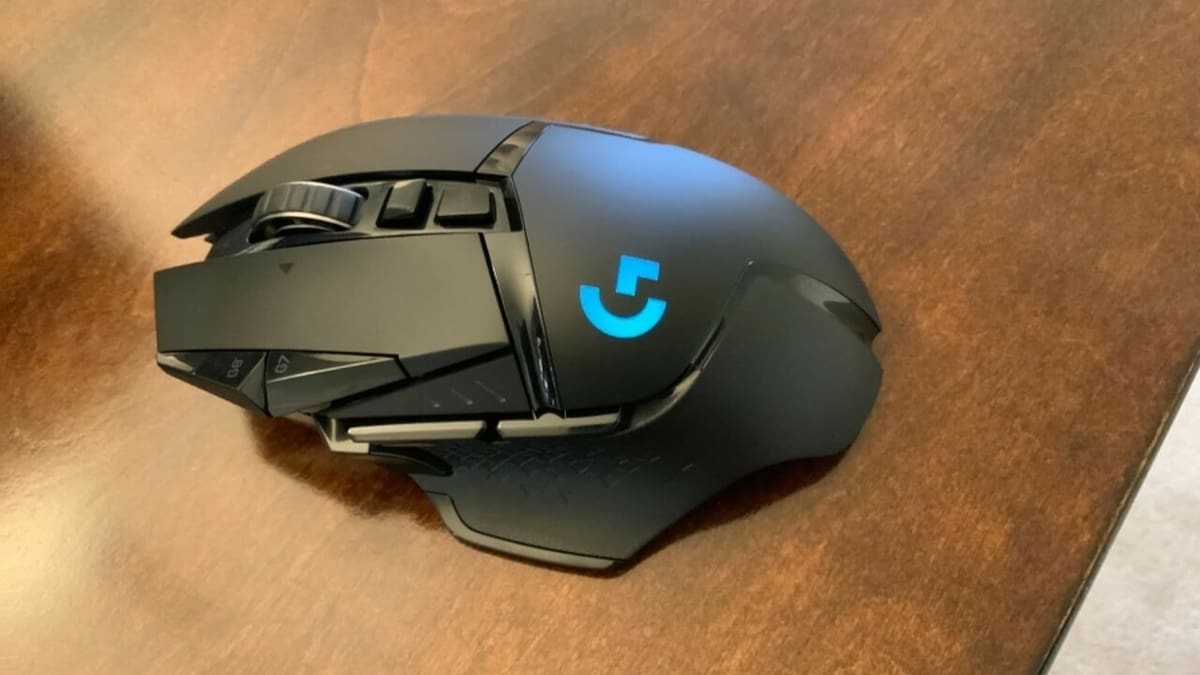
The Logitech G502 was developed with the gaming audience in mind, but it includes attributes that can be very interesting for designers. Its modern appearance with a rubberized side offers additional comfort for those who like this type of grip while maintaining the same ergonomics as its previous models, as well as the standard 11 programmable buttons. Like other gaming options, it has a high-resolution 25K DPI sensor and two buttons where you can increase or decrease between 5 different DPI pre-settings, providing quick and practical sensitivity customization.
Among other features for use with CAD and 3D design, it has wireless charging with a battery life of up to 60 hours and an adjustable weight system. To perform wireless charging, the G502 Lightspeed depends on the PowerPlay mouse pad, which in addition to performing wireless charging can also act as a receiver for the mouse. It’s worth noting that the pad can cost ~$110 and be more expensive than the mouse itself, but it also eliminates any concerns about charging. Professionals who work with design recommend both it and its predecessors.
- Manufacturer: Logitech
- Wired or wireless: Wireless and wired
- Special features: Ergonomic design, advanced optical tracking, adjustable resolution, programmable buttons, wireless charging optional function
- Approximate price: $150
Evoluent VerticalMouse

Designed with ergonomic principles in mind, the Evoluent VerticalMouse aims to promote comfort and reduce the risk of wrist pain and forearm twisting. Its unique vertical shape supports the hand in an upright posture, alleviating strain during prolonged CAD sessions.
The Evoluent VerticalMouse offers a wide range of features. It boasts programmable buttons that are conveniently positioned for easy access, adjustable pointer speed, improved thumb rest, and more. The mouse’s illuminated Evoluent logo can be turned off to conserve battery power, and its extended lip prevents rubbing on the desk.
- Manufacturer: Evoluent
- Wired or wireless: Wired (wireless versions are also available)
- Special features: Ergonomic vertical design, programmable buttons, adjustable pointer speed, illuminated logo, improved thumb rest
- Approximate price: $160
Razer Naga Chroma
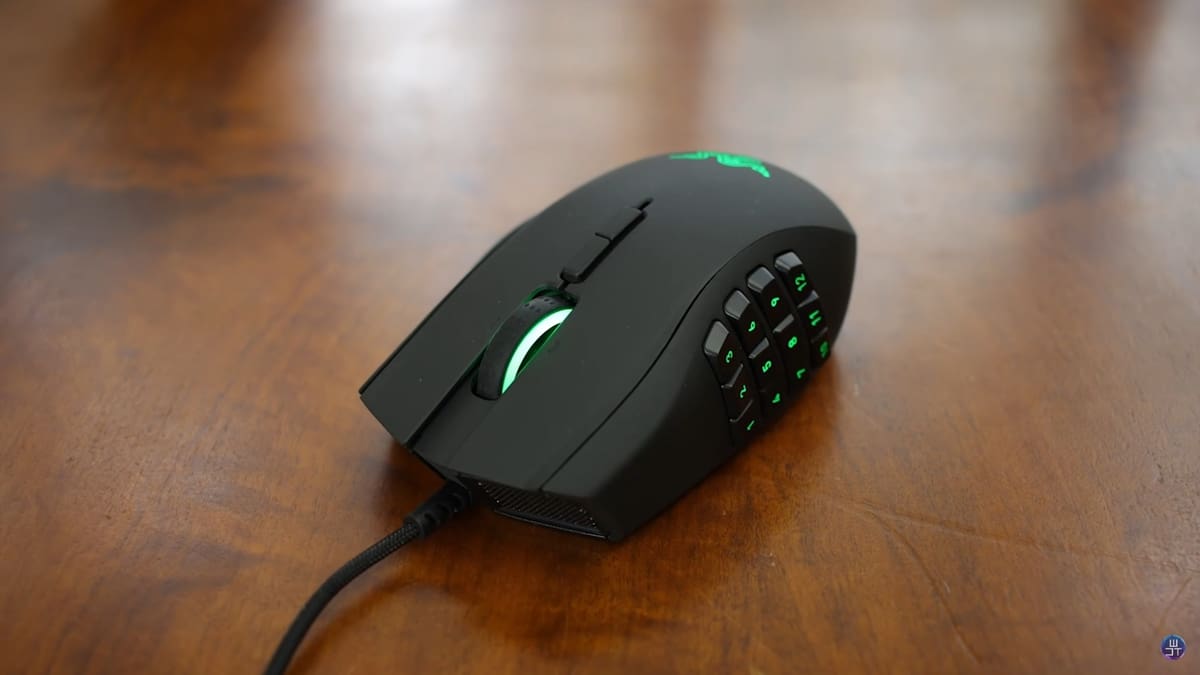
Another gaming mouse that’s well-loved for CAD work, the sleek Razer Naga Chroma is a high-end, top-rated mouse that can program up to 19 buttons. It boasts millions of color lighting options, and users report that it can be a solid choice for drafting purposes as well as editing work in CAD software.
With a 16,000 DPI laser sensor, the Naga Chroma has a lot of precision capability. It works for a wide variety of hand sizes, and users with wider hands have remarked that it’s a particularly comfy fit.
While its value can’t be denied, if it’s a bit out of budget, an alternative like the Naga Trinity might be another worthy option to consider.
Razer also offers a left-handed version of the Razer Naga.
- Manufacturer: Razer
- Wired or wireless: Wired
- Special features: Excellent laser sensor, high DPI
- Approximate price: $230
Logitech TrackMan
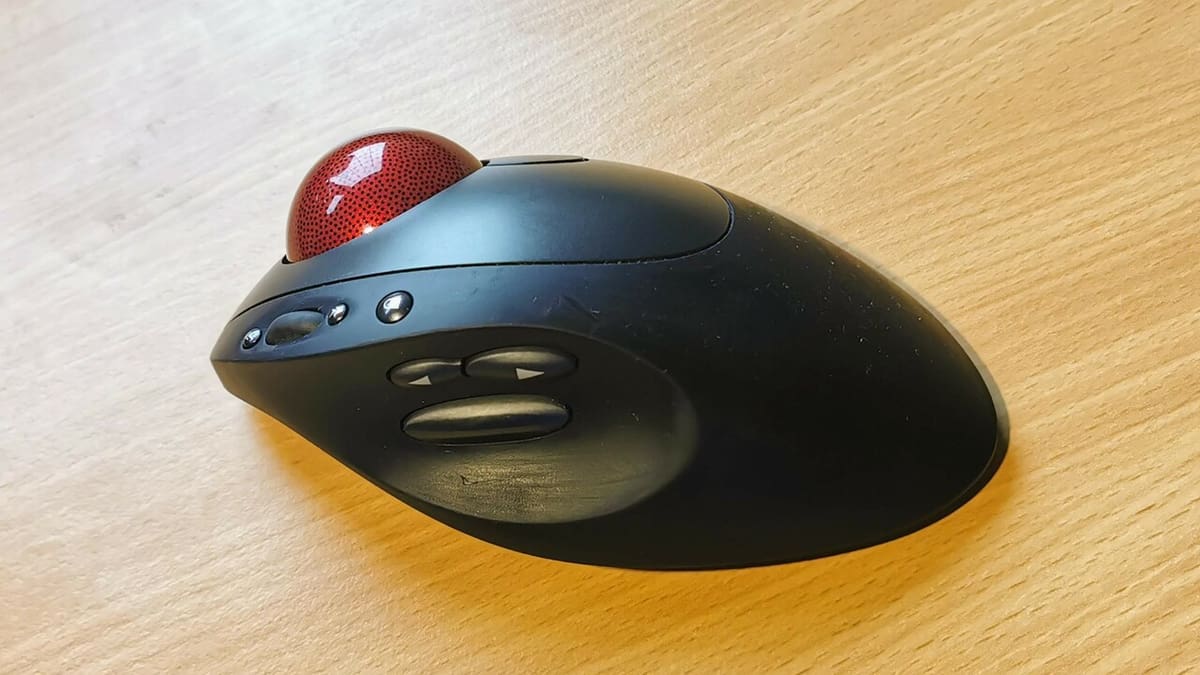
This is another trackball with good recommendations among designers and a slightly larger size than traditional mice, so it’s important to consider this if your hands are small. The trackball position is perfect for use with both the index and middle fingers, and there are also eight programmable buttons that are very useful for shortcuts and frequently used functions. Its Wi-Fi receiver is also not that small; therefore Logitech’s TrackMan is more recommended for desktops and tables that have a good amount of space.
While this device’s price might seem steep for a mouse of this type with Wi-Fi connection, its popularity is high among designers – some users report using it for up to 15 years. This mouse uses two AA batteries and comes with an adapter for PS/2 connections. At Amazon, several users praise the accessory as one of the best trackball options they have ever used, but of course it’ll come down to how it adapts to your workflow, ergonomic needs, and budget.
- Manufacturer: Logitech
- Wired or wireless: Wireless
- Special features: Ergonomic design, soft-touch surface, smooth tracking, programmable buttons
- Approximate price: $400
SpaceMouse Options
The primary mice seen up to now can help a lot with their additional functions like shortcut buttons and better movement precision, but there’s something that they can’t achieve, which is six degrees of freedom or 6 DoF.
Consider that when manipulating and editing 3D objects, the point of view is important to be able to analyze the model and editing tasks. Therefore, adjusting the view of the model or drawing is also very important, but can be somewhat clumsy without a SpaceMouse or pre-defined viewing shortcuts.
Just to clarify, the six degrees of freedom are achieved by manipulating six different rotation axes at the same time in a single movement. This affords the sensation of having your hands inside the digital environment, allowing for smooth and precise movements when adjusting the viewport.
In short, a SpaceMouse is an accessory that expands on the feeling of immersion in the digital environment. However, while it can’t take over the computer controls as the primary mouse, it’s still a great complement that expands the control options and increases productivity.
SpaceMouse
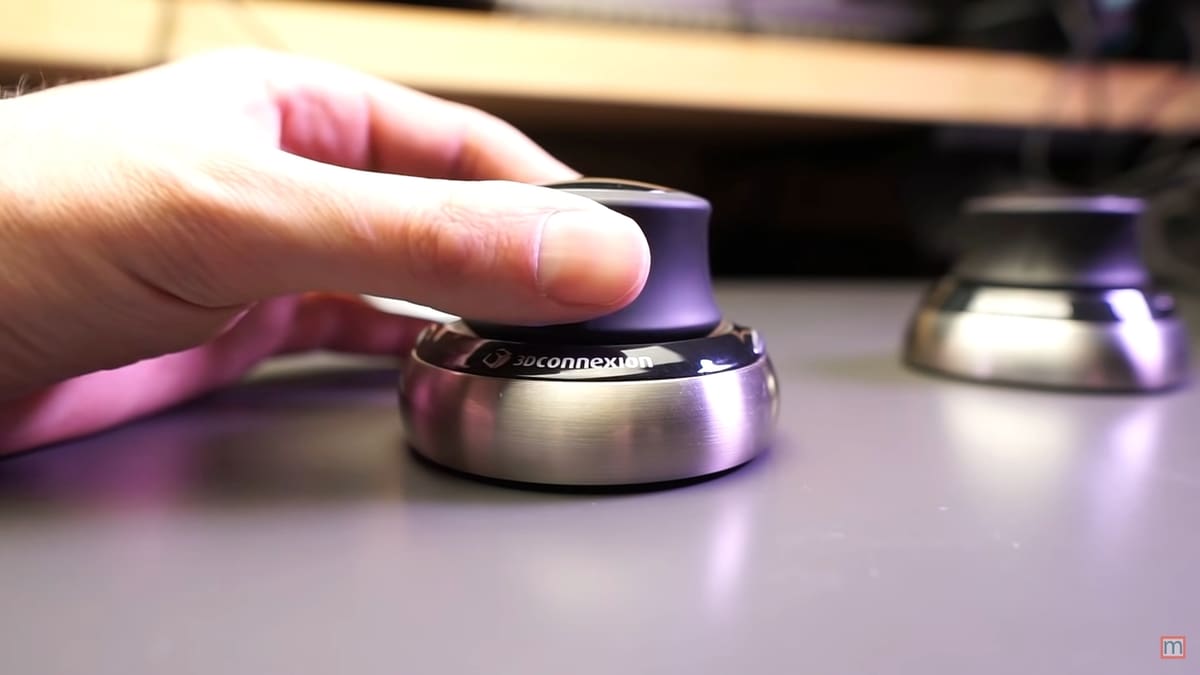
This highly sensitive and responsive 3D mouse designed specifically for CAD work is a particularly good pick for drawing and 3D modeling. Made by popular CAD mouse company 3DConnexion, this wireless option boasts up to one month of battery life and an easy-access radial menu for direct access to application commands (you can program up to eight).
The “six-degrees-of-freedom” sensor makes it seamless to zoom in on or pan out from your drawing or model so it leaves your other hand free to do the edits. Users report that this is a particularly excellent mouse for work in Fusion 360.
And if you want to opt for a wired version, the SpaceMouse Compact offers the same functionality.
- Manufacturer: 3DConnexion
- Wired or wireless: Wireless
- Special features: “Six-degrees-of-freedom” sensor, one month of battery life, USB cable connection
- Approximate price: $170
SpaceMouse Pro

Designed specifically for CAD work in fields like engineering and architecture, it’s simple to work on your 3D designs for long stretches of time without fatigue or technical issues with this state-of-the-art mouse. Since the keyboard modifiers reduce how much typing you need to do, you’ll save time and spare your wrists and fingers.
The buttons on the SpaceMouse Pro contain a multitude of customization options, and the QuickView keys offer users 12-view access. It’s also quite compact considering its capabilities, and it comes with an enclosed CD with initial exercises to help users adjust, as there’s a bit of a learning curve.
- Manufacturer: 3DConnexion
- Wired or wireless: Wired
- Special features: Keyboard modifiers, 12-view keys, four function keys, full-size hand rest
- Approximate price: $300
License: The text of "The Best 3D Mouse for CAD" by All3DP is licensed under a Creative Commons Attribution 4.0 International License.
CERTAIN CONTENT THAT APPEARS ON THIS SITE COMES FROM AMAZON. THIS CONTENT IS PROVIDED ‘AS IS’ AND IS SUBJECT TO CHANGE OR REMOVAL AT ANY TIME.

